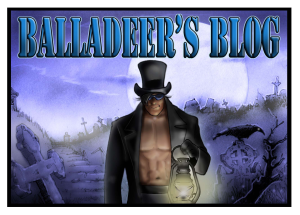The Tupari of Brazil had a very rich pantheon of deities. For the full list click HERE This blog post looks at the Soul’s Journey after death.
 THE SOUL’S JOURNEY TO THE LAND OF THE DEATH-GOD PATOBKIA – Like many other groups of people the Tupari distinguished between an animating force and an actual spirit.
THE SOUL’S JOURNEY TO THE LAND OF THE DEATH-GOD PATOBKIA – Like many other groups of people the Tupari distinguished between an animating force and an actual spirit.
After death, while the spirit, or Pabid, proceeds to the land ruled by the god Patobkia, the Kiapoga , the animating force or “ghost” remains in the heart of the dead human. Eventually it bursts from the heart like a bird from an egg. The village shamans clean the Kiapoga, shape its clay-like form to resemble the deceased, and then release the ghost, which forever floats invisibly in the air near the place of death.
 The Pabid, meanwhile, journeys far away from the land of the living, completely blind as it makes its way. First it proceeds over the backs of two gigantic male and female crocodiles. The male crocodile attacks the moon god Puepa at times, causing eclipses of the moon, and the female crocodile attacks the sun goddess Karam at other times, causing eclipses of the sun. Though Puepa and Karam are both elderly they are still powerful – Karam more than Puepa in fact – and always drive the crocodiles away eventually.
The Pabid, meanwhile, journeys far away from the land of the living, completely blind as it makes its way. First it proceeds over the backs of two gigantic male and female crocodiles. The male crocodile attacks the moon god Puepa at times, causing eclipses of the moon, and the female crocodile attacks the sun goddess Karam at other times, causing eclipses of the sun. Though Puepa and Karam are both elderly they are still powerful – Karam more than Puepa in fact – and always drive the crocodiles away eventually.
Next the Pabid walks along the backs of two enormous serpents, again, one male and one female. These serpents are usually invisible to humans but after getting soaked from rainfall they are briefly visible as rainbows. Following this part of the journey the Pabid encounters two gigantic jaguars, male and female of course. The enormous jaguars try to frighten the Pabid away with their growls but as long as a Pabid does not allow itself to feel fear the jaguars cannot hurt it.
At last the spirit, still blind as yet, enters Patobkia’s village on the banks of the river Mani-Mani. A pair of fat worms eat their way into the Pabid’s stomach and then devour all of the spirit’s intestines, removing all traces of earthly foods. Then they crawl out again. Patobkia himself now welcomes the newcomer and sprinkles pepper juice in the Pabid’s eyes, and when the stinging stops the Pabid’s vision returns and it gets its first look at the afterlife.
Patobkia next hands the Pabid a bowl of chicha, the alcoholic beverage the Tupari brew. When the newly arrived spirit is done drinking the god of the dead leads him deeper into the village toward two other deities who are part of his divine court. The male deity is Mpokalero and the female deity is Vaugeh.
If the Pabid is male it must have sex with Vaugeh in front of Patobkia and all the other souls of the dead. If the Pabid is female it must have sex with Mpokalero before the entire assemblage. Just as the two fat worms devoured all the last food of the living from the Pabid this sex act is the last lovemaking the Pabid will ever indulge in and it removes the last physical desire from the spirit.
The spirits all live in the same kind of large, round and domed huts the Tupari dwelt in while alive. They sleep standing up with their arms over their eyes.
There is much singing and dancing and no work is ever required in the village or “maloca”. Patobkia waves his hands and causes all the farming, hunting, cleaning of the fields and gathering of other food to be accomplished with his magic. Various mystical fruits and vegetables grow in the land of the dead and Tupari shamans can send their astral forms there to obtain those items to cure the living.
FOR MORE GODS FROM AROUND THE WORLD CLICK HERE: https://glitternight.com/category/mythology/
© Edward Wozniak and Balladeer’s Blog, 2013. Unauthorized use and/or duplication of this material without express and written permission from this blog’s author and/or owner is strictly prohibited. Excerpts and links may be used, provided that full and clear credit is given to Edward Wozniak and Balladeer’s Blog with appropriate and specific direction to the original content.

A very interesting read! Thank you!!
Thank you for the kind words! I appreciate it.
My pleasure! They are well merited!
Thank you again!
Great article!👏👏👏
Thank you very much!
I want to see a pagan culture emerge now for the Tupa like the Hellenismos movement!
Maybe it will happen!
I want the drugs these guys were using!
I understand!
I love reading your blog every morning!
Thanks!
BALLADEER’S BLOG AT GLITTERNIGHT.COM IS THE GREATEST BLOG ON THE WEB!
Thank you.
You are so brilliant with these mythology posts.
Thank you.